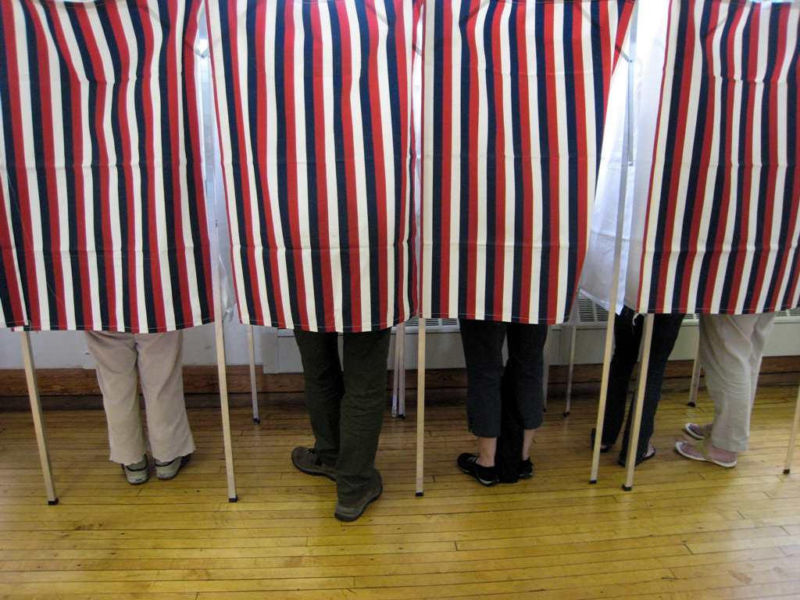
As many as 44 US states are now refusing to hand voter data over to President Donald Trump and his administration citing legal and privacy concerns. This cache includes information such as voters' full names, political affiliations, addresses, dates of birth, criminal records, the last four digits of Social Security numbers, and other personal identifying information. The tussle continues despite the fact that some of the desired data, including whether individuals have voted in the past decade, is set to become part of the public record separate from this situation.
This wave of refusals comes a week after the Presidential Advisory Commission on Election Integrity sent a letter (PDF) to the nation's 50 states seeking the information so the newly created Trump commission could "analyze vulnerabilities and issues related to voter registration and voting." Trump signed the executive order in May to create the commission amid his own claims that there was voter fraud on a massive scale during the 2016 election. Trump alleged that millions had voted illegally, but so far those claims have been unfounded.
Bring out your dead
According to a CNN inquiry, many states said that some of the data—like dates of birth and Social Security numbers—could not be released because it was a breach of state laws. But the Election Integrity commission sees value in such data points. Kansas Secretary of State Kris Kobach, the commission's vice chair, has said SSNs could be used to determine how many people who are dead remain on voter rolls and whether they have recently voted, for instance.
The Electronic Privacy Information Center (EPIC), a non-profit research organization in DC, is suing the commission on accusations that the requested information violated the privacy of American voters. EPIC also says the commission is asking the states to forward the data to an unsecure website. On Tuesday, EPIC filed a Freedom of Information Act claim in a bid to obtain internal commission communications about the data request.
"...the Commission’s demand for detailed voter histories violated the Constitutional right to privacy," the FOIA states. "And EPIC explained that the Commission had already committed two egregious security blunders—(1) directing state election officials to send voter records to an unsecure web site and (2) proposing to publish partial SSNs that would enable identity theft and financial fraud."
Louisiana Secretary of State Tom Schedler said that the commission can purchase voter data that becomes publicly available. Data falling into that category includes the names of registered voters, addresses, party affiliation, and the history of whether voters participated in elections (but not actual votes cast).
"The President’s Commission has quickly politicized its work by asking states for an incredible amount of voter data that I have, time and time again, refused to release," Schedler (R-La.) said in a statement. "My response to the Commission is, you're not going to play politics with Louisiana's voter data, and if you are, then you can purchase the limited public information available by law to any candidate running for office. That’s it."
Schedler said President Barack Obama's administration had unsuccessfully tried to get Louisiana private voter data in 2011 amid accusations that the state was not registering prospective voters if they were receiving state financial assistance.
Go jump in the Gulf
What voter information becomes publicly available varies state to state. Some states have said that party affiliations and dates of birth are private, for example.
Mississippi Secretary of State Delbert Hosemann did not mince words when presented with this federal information request. "They can go jump in the Gulf of Mexico, and Mississippi is a great state to launch from," the Republican said in a statement.
Over the weekend, Trump lashed out at the states' responses. "Numerous states are refusing to give information to the very distinguished VOTER FRAUD PANEL. What are they trying to hide?" Trump tweeted.
CNN contacted all 50 states, and only three—Colorado, Missouri, and Tennessee—confirmed they would assist the commission's investigation. A few others did not respond for comment, and the news organization has published a state-by-state breakdown.
Missouri Secretary of State Jay Ashcroft published a statement defending his state's decision to participate. "The commission's questions are fair and we will be glad to assist in offering our thoughts on these important matters," the Republican said. "I look forward to working with Sec. Kris Kobach and the commission on its findings and offer our support in the collective effort to enhance the American people's confidence in the integrity of the elections process."
reader comments
359